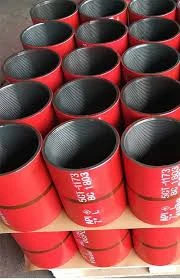- Afrikaans
- Albanian
- Amharic
- Arabic
- Armenian
- Azerbaijani
- Basque
- Belarusian
- Bengali
- Bosnian
- Bulgarian
- Catalan
- Cebuano
- Corsican
- Croatian
- Czech
- Danish
- Dutch
- English
- Esperanto
- Estonian
- Finnish
- French
- Frisian
- Galician
- Georgian
- German
- Greek
- Gujarati
- Haitian Creole
- hausa
- hawaiian
- Hebrew
- Hindi
- Miao
- Hungarian
- Icelandic
- igbo
- Indonesian
- irish
- Italian
- Japanese
- Javanese
- Kannada
- kazakh
- Khmer
- Rwandese
- Korean
- Kurdish
- Kyrgyz
- Lao
- Latin
- Latvian
- Lithuanian
- Luxembourgish
- Macedonian
- Malgashi
- Malay
- Malayalam
- Maltese
- Maori
- Marathi
- Mongolian
- Myanmar
- Nepali
- Norwegian
- Norwegian
- Occitan
- Pashto
- Persian
- Polish
- Portuguese
- Punjabi
- Romanian
- Russian
- Samoan
- Scottish Gaelic
- Serbian
- Sesotho
- Shona
- Sindhi
- Sinhala
- Slovak
- Slovenian
- Somali
- Spanish
- Sundanese
- Swahili
- Swedish
- Tagalog
- Tajik
- Tamil
- Tatar
- Telugu
- Thai
- Turkish
- Turkmen
- Ukrainian
- Urdu
- Uighur
- Uzbek
- Vietnamese
- Welsh
- Bantu
- Yiddish
- Yoruba
- Zulu
tubing collar
Understanding Tubing Collars Importance and Applications in the Oil and Gas Industry
In the oil and gas industry, efficiency and reliability are paramount to successful drilling operations. One crucial component that plays a significant role in the drilling process is the tubing collar. This article will explore what tubing collars are, their functions, and why they are essential in the oil and gas sector.
What are Tubing Collars?
Tubing collars are specialized fittings used in oil and gas drilling operations. They are essentially short sections of pipe, typically made from high-strength steel, designed to connect different sections of tubing. Tubings, which are used to transport hydrocarbons from the reservoir to the surface, are essential for the drilling, production, and operation of wells. Collars serve as connectors that ensure a secure and standardized link between sections of tubing.
Functions of Tubing Collars
1. Structural Integrity One of the primary functions of tubing collars is to provide structural integrity and support to the overall tubing string. They are engineered to withstand high pressures and harsh environmental conditions prevalent in drilling operations. The use of collars ensures that any tensile or compressive forces exerted on the tubing are adequately absorbed, preventing failures.
2. Connection and Sealing Tubing collars facilitate the connection between tubing sections while ensuring they are tightly sealed. A good seal is crucial to prevent leaks, which can lead to environmental concerns and loss of resources. Collars typically come equipped with threading to ensure a snug fit that maintains the integrity of the system.
3. Weight Distribution Tubing collars also play a role in weight distribution along the tubing string. In deep well drilling, the weight of the tubing string increases significantly with depth. Collars help distribute this weight evenly, reducing the risk of buckling or collapsing under the extreme pressure conditions found underground.
4. Access Points In addition to connecting tubing sections, collars can also serve as access points for various downhole tools and equipment. This allows for easier deployment and retrieval of tools necessary for well maintenance, inspections, or interventions. Access points are strategically placed to ensure operational efficiency and minimize downtime.
tubing collar

Importance of Tubing Collars in Operations
The importance of tubing collars cannot be overstressed. In the highly competitive and technologically advanced world of oil and gas extraction, even minor equipment failures can lead to costly delays and safety hazards. Here are a few reasons why tubing collars are vital
1. Safety Assurance The structural integrity provided by tubing collars directly contributes to the overall safety of drilling operations. By ensuring that the tubing remains intact under high pressure and extreme conditions, collars help mitigate the risks associated with blowouts or other unsafe occurrences.
2. Operational Efficiency With their role in providing strong and reliable connections, tubing collars enhance the operational efficiency of drilling programs. They enable quicker assembly and disassembly of tubing strings, thus facilitating faster drilling operations and minimizing non-productive time.
3. Adaptability Tubing collars come in various designs and materials, allowing for adaptability according to specific drilling conditions. Whether dealing with high-temperature environments or highly corrosive substances, selecting the right type of collar can enhance performance and extend the life of the tubing.
4. Cost-Effectiveness Investing in quality tubing collars can be cost-effective in the long run. Reliable collars reduce the incidence of costly repairs and downtime, making projects more economical. Furthermore, improved safety and efficiency resulted from using high-quality collars can lead to higher overall production rates.
Conclusion
In summary, tubing collars are an indispensable component in the oil and gas industry's drilling toolkit. Their functions—ranging from supporting structural integrity to facilitating connections and ensuring safety—are vital for successful drilling operations. As technology continues to evolve, so too will the designs and materials used in tubing collars, providing even better solutions for the challenges faced in the ever-demanding oil and gas sector. Understanding the significance of tubing collars is essential for anyone involved in drilling operations, as their proper selection and use can greatly influence the efficiency and safety of the entire process.
-
Tubing Pup Joints: Essential Components for Oil and Gas OperationsNewsJul.10,2025
-
Pup Joints: Essential Components for Reliable Drilling OperationsNewsJul.10,2025
-
Pipe Couplings: Connecting Your World EfficientlyNewsJul.10,2025
-
Mastering Oilfield Operations with Quality Tubing and CasingNewsJul.10,2025
-
High-Quality Casing Couplings for Every NeedNewsJul.10,2025
-
Boost Your Drilling Efficiency with Premium Crossover Tools & Seating NipplesNewsJul.10,2025







